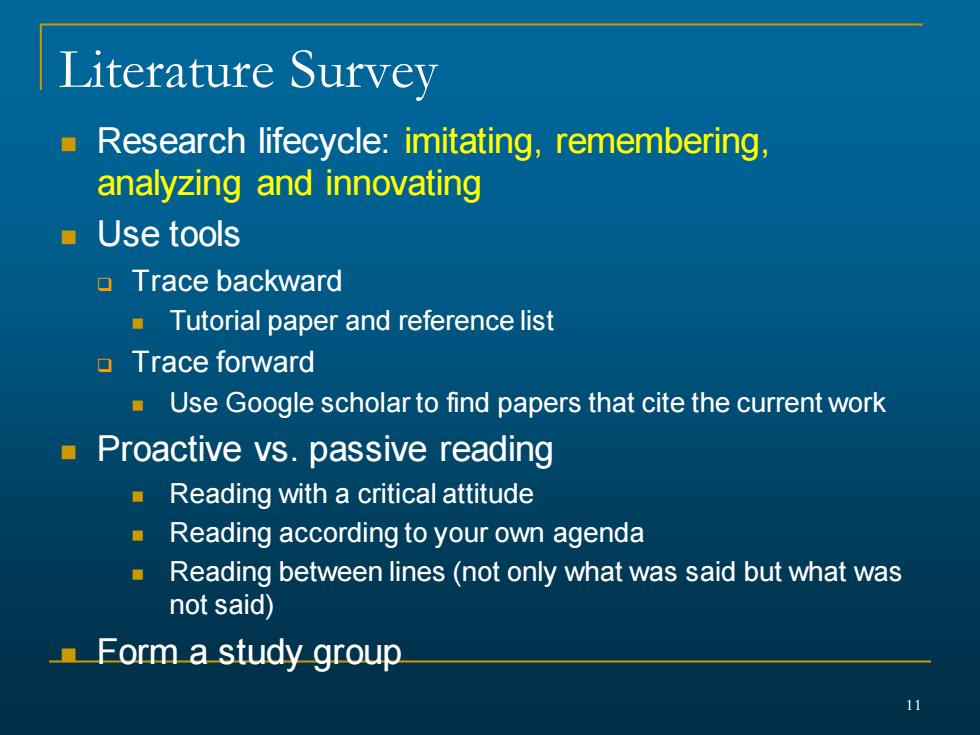
Literature Survey Research lifecycle:imitating,remembering analyzing and innovating ■Use tools Trace backward Tutorial paper and reference list Trace forward Use Google scholar to find papers that cite the current work Proactive vs.passive reading Reading with a critical attitude Reading according to your own agenda Reading between lines(not only what was said but what was not said) Form a study group
11 Literature Survey ◼ Research lifecycle: imitating, remembering, analyzing and innovating ◼ Use tools ❑ Trace backward ◼ Tutorial paper and reference list ❑ Trace forward ◼ Use Google scholar to find papers that cite the current work ◼ Proactive vs. passive reading ◼ Reading with a critical attitude ◼ Reading according to your own agenda ◼ Reading between lines (not only what was said but what was not said) ◼ Form a study group
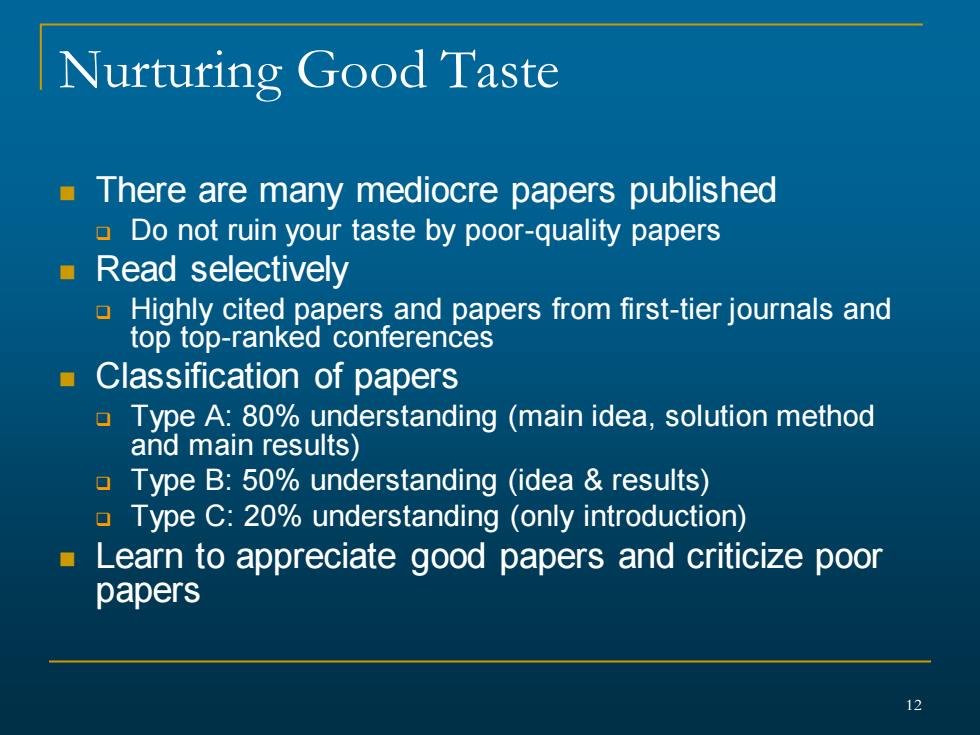
Nurturing Good Taste There are many mediocre papers published Do not ruin your taste by poor-quality papers Read selectively Highly cited papers and papers from first-tier journals and top top-ranked conferences Classification of papers Type A:80%understanding (main idea,solution method and main results) Type B:50%understanding (idea results) Type C:20%understanding (only introduction) Learn to appreciate good papers and criticize poor papers 12
12 Nurturing Good Taste ◼ There are many mediocre papers published ❑ Do not ruin your taste by poor-quality papers ◼ Read selectively ❑ Highly cited papers and papers from first-tier journals and top top-ranked conferences ◼ Classification of papers ❑ Type A: 80% understanding (main idea, solution method and main results) ❑ Type B: 50% understanding (idea & results) ❑ Type C: 20% understanding (only introduction) ◼ Learn to appreciate good papers and criticize poor papers
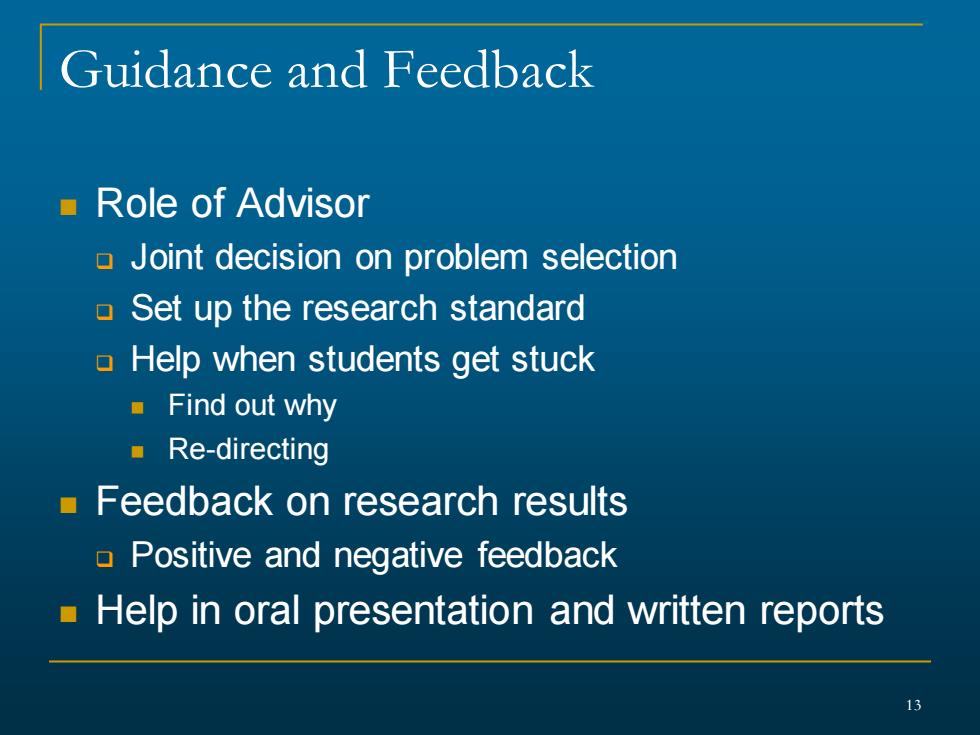
Guidance and Feedback ■Role of Advisor Joint decision on problem selection Set up the research standard Help when students get stuck Find out why Re-directing Feedback on research results Positive and negative feedback Help in oral presentation and written reports 13
13 Guidance and Feedback ◼ Role of Advisor ❑ Joint decision on problem selection ❑ Set up the research standard ❑ Help when students get stuck ◼ Find out why ◼ Re-directing ◼ Feedback on research results ❑ Positive and negative feedback ◼ Help in oral presentation and written reports
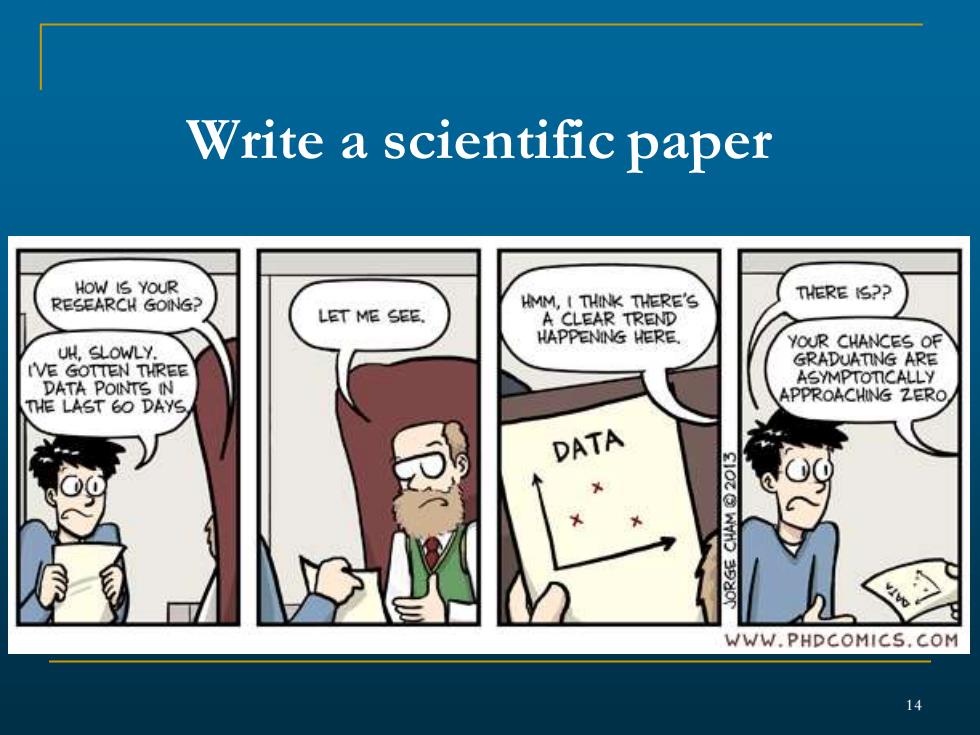
Write a scientific paper HoW IS YOUR RESEARCH GOING? HMM,I THINK THERE'S THERE ISPP LET ME SEE. A CLEAR TREND HAPPENING HERE. YOUR CHANCES OF UH,SLOWLY. GRADUATING ARE IVE GOTTEN THREE DATA POINTS IN ASYMPTOTICALLY APPROACHING ZERO THE LAST 60 DAYS DATA WWW.PHDCOMICS.COM
Write a scientific paper 14
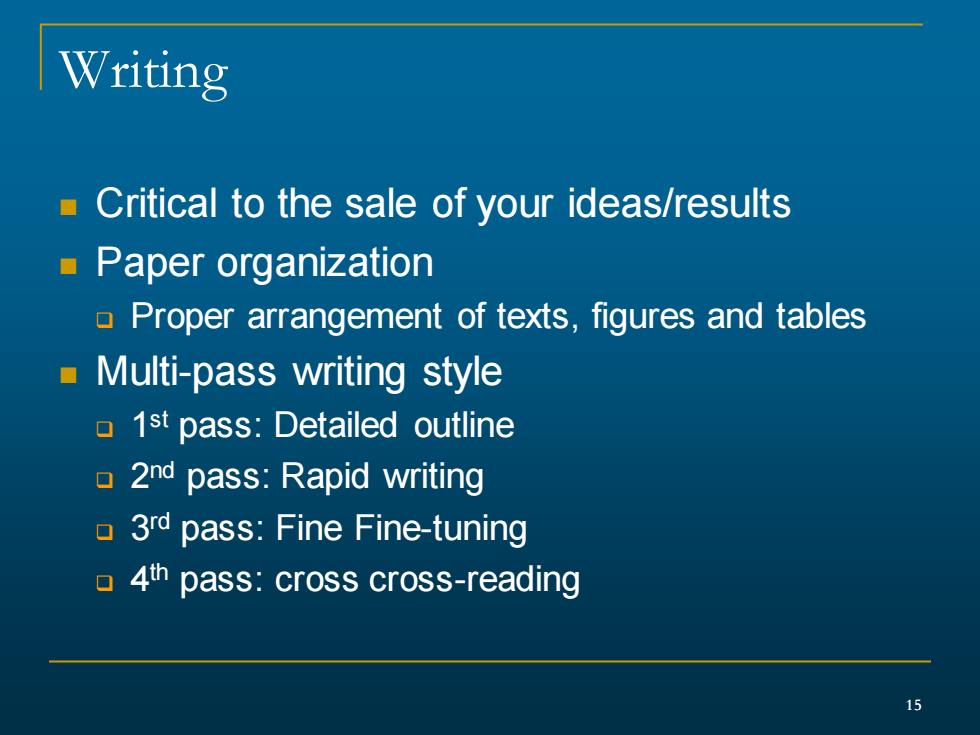
Writing Critical to the sale of your ideas/results Paper organization Proper arrangement of texts,figures and tables Multi-pass writing style 1st pass:Detailed outline 2nd pass:Rapid writing 3rd pass:Fine Fine-tuning 4th pass:cross cross-reading 15
15 Writing ◼ Critical to the sale of your ideas/results ◼ Paper organization ❑ Proper arrangement of texts, figures and tables ◼ Multi-pass writing style ❑ 1 st pass: Detailed outline ❑ 2 nd pass: Rapid writing ❑ 3 rd pass: Fine Fine-tuning ❑ 4 th pass: cross cross-reading